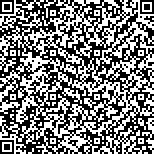| 引用本文: |
吴伊莹, 柳玉佳, 廖亮英, 范伏元, 郭志华.基于Hepcidin和JAK2/STAT3信号通路探讨通痹颗粒对胶原诱导性关节炎大鼠的影响[J].湖南中医药大学学报,2024,44(6):960-966[点击复制] |
|
| |
|
|
| 本文已被:浏览 2181次 下载 974次 |
| 基于Hepcidin和JAK2/STAT3信号通路探讨通痹颗粒对胶原诱导性关节炎大鼠的影响 |
| 吴伊莹,柳玉佳,廖亮英,范伏元,郭志华 |
| (湖南中医药大学第一附属医院, 湖南 长沙 410007;湖南中医药大学, 湖南 长沙 410208) |
| 摘要: |
| 目的 研究通痹颗粒对胶原诱导性关节炎(collagen-induced arthritis, CIA)大鼠铁调素(hepcidin, Hepc)、Janus激酶(janus kinase, JAK)2/信号转导子和转录激活子(signal transduction and activator of transcription, STAT)3信号通路的影响。方法 选取36只雌性SD大鼠随机分成空白组、模型组、阳性对照组和通痹颗粒低、中、高剂量组,每组6只。空白组不予处理,其余组用牛Ⅱ型胶原建立CIA模型。造模完成后,空白组、模型组予生理盐水灌胃,其余各组分别以巴瑞替尼片和低、中、高剂量通痹颗粒灌胃。每天1次,连续4周。HE染色行滑膜组织病理学观察;酶联免疫吸附法测定血清Hepc、白细胞介素6(interleukin 6, IL-6)水平;逆转录-聚合酶链反应法测定滑膜中JAK2、STAT3、细胞信号因子传导抑制体(suppressor of cytokine signaling, SOCS)1、SOCS3的mRNA相对表达量;Western blot法检测滑膜中JAK2、p-JAK2、STAT3、p-STAT3、SOCS1、SOCS3的蛋白表达量。结果 模型组见滑膜上皮结构缺损,滑膜重度增生,排列紊乱,并有大量炎症细胞浸润和多个血管翳形成;各给药组滑膜炎症均有所减轻,阳性对照组优于通痹颗粒高剂量组,通痹颗粒中、高剂量组优于低剂量组。与模型组相比,各给药组关节炎指数评分、血清Hepc和IL-6水平均显著降低(P<0.01);与阳性对照组相比,通痹颗粒中、低剂量组关节炎指数评分、血清Hepc和IL-6水平均升高(P<0.05)。与模型组比较,阳性对照组和通痹颗粒低、中、高剂量组JAK2、STAT3 mRNA和蛋白以及p-JAK2、p-STAT3的蛋白表达量均降低(P<0.05),而通路抑制因子SOCS1、SOCS3 mRNA和蛋白的表达均升高(P<0.05);与阳性对照组比较,通痹颗粒各剂量组JAK2、STAT3 mRNA和蛋白以及p-JAK2、p-STAT3的蛋白表达量均升高(P<0.05),而SOCS1、SOCS3 mRNA和蛋白的表达均降低(P<0.05)。结论 通痹颗粒能够改善CIA大鼠滑膜炎症,其机制可能与抑制JAK2/STAT3信号通路而减少Hepc的表达有关。 |
| 关键词: 类风湿关节炎 胶原诱导性关节炎 中药 通痹颗粒 铁调素 JAK2/STAT3信号通路 |
| DOI:10.3969/j.issn.1674-070X.2024.06.005 |
| 投稿时间:2023-11-26 |
| 基金项目:湖南省自然科学基金项目(2020JJ5434,2023JJ40508);湖南省教育厅科研项目(21B0370);湖南省卫生健康委科研项目(202103101094, 20201816);湖南省中医药管理局基金项目(D2022123)。 |
|
| Effects of Tongbi Granule on collagen-induced arthritis rats based on Hepcidin and JAK2/STAT3 signaling pathway |
| WU Yiying, LIU Yujia, LIAO Liangying, FAN Fuyuan, GUO Zhihua |
| (The First Hospital of Hunan University of Chinese Medicine, Changsha, Hunan 410007, China;Hunan University of Chinese Medicine, Changsha, Hunan 410208, China) |
| Abstract: |
| Objective To study the effects of Tongbi Granule on hepcidin (Hepc) and janus kinase (JAK) 2/signal transduction and activator of transcription (STAT) 3 signaling pathway in collagen-induced arthritis (CIA) rats. Methods A total of 36 female SD rats were randomized into blank, model, positive control, low-, medium-, and high-dose of Tongbi Granule groups, with six rats in each group. CIA model was constructed with bovine type Ⅱ collagen in all groups except the blank group. After modeling, the blank and model groups were given normal saline by gavage, the other groups were given baricitinib tablets, and low-, medium-, and high-dose of Tongbi Granule by gavage respectively, once a day, for continual four weeks. HE staining was performed to observe pathological synovial tissue. Serum Hepc and interleukin 6 (IL-6) levels were measured by ELISA. The mRNA relative expressions of JAK2, STAT3, suppressor of cytokine signaling (SOCS) 1, and SOCS3 in synovium were determined by RT-PCR. Western blot was used to test the protein expressions of JAK2, p-JAK2, STAT3, p-STAT3, SOCS1 and SOCS3 in synovium. Results In the model group, there were defects of synovial epithelium, severe synovial hyperplasia, disordered arrangement, and a large number of inflammatory cell infiltration and pannus formation. However, all administration groups showed reduction of synovial inflammation, the positive control group was better than the high-dose Tongbi Granule group, and the medium- and high-dose groups was better than the low-dose group. Compared with model group, arthritis index scores, and levels of serum Hepc and IL-6 were significantly lower in all drug administration groups (P<0.01). Compared with the positive control group, the arthritis index scores, serum Hepc and IL-6 levels in low- and medium-dose Tongbi Granule groups were higher (P<0.05). Compared with model group, the mRNA and protein expressions of JAK2 and STAT3, as well as the protein expressions of p-JAK2 and p-STAT3 were lower (P<0.05), while the mRNA and protein expressions of pathway inhibitors SOCS1 and SOCS3 were higher in positive control group and low-, medium-, and high-dose Tongbi Granule groups (P<0.05). Compared with positive control group, the mRNA and protein expressions of JAK2 and STAT3, and the protein expressions of p-JAK2 and p-STAT3 were higher in Tongbi Granule groups of various doses (P<0.05), while the mRNA and protein expressions of SOCS1 and SOCS3 were lower (P<0.05). Conclusion Tongbi Granule can relieve synovial inflammation in CIA rats, and its mechanism may be related to inhibiting JAK2/STAT3 signaling pathway and reducing the expression of Hepc. |
| Key words: rheumatoid arthritis collagen-induced arthritis Chinese medicines Tongbi Granule hepcidin janus kinase 2/signal transduction and activator of transcription 3 signaling pathway |
|

二维码(扫一下试试看!) |
|
|
|
|




